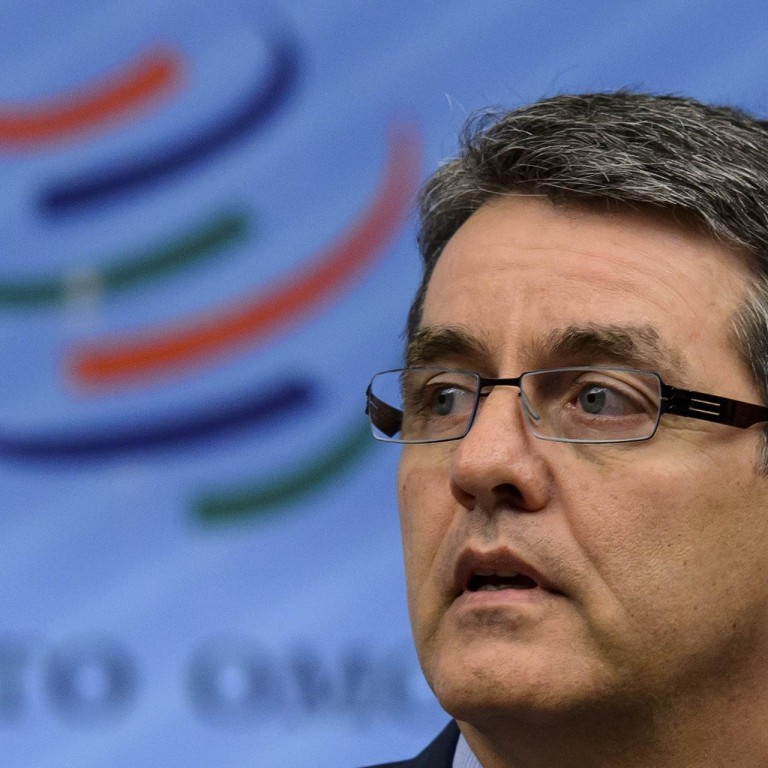
Impasse at WTO seen as boosting appeal of bilateral deals for China
China seen as more likely to deepen its efforts towards bilateral and regional pacts after latest setback at peak body over customs procedures
The World Trade Organisation's failure to reach a significant multilateral deal may prompt countries such as China to accelerate talks on bilateral and regional pacts in a bid to rejuvenate sluggish trade growth, analysts say.
In December, WTO members had cheered on reaching a trade facilitation agreement (TFA) to simplify customs procedures by reducing costs and improving their speed and efficiency, in what was dubbed as one of the biggest reforms of the organisation since its establishment in 1995.
But Roberto Azevedo, the director-general of the WTO, announced on Thursday that member countries had failed to bridge the gap by the deadline to put the text into the WTO's rule book after India demanded concessions on agricultural stockpiling.
There’s hope for us to push forward trade cooperation in smaller scopes
"The WTO is a victim of flawed procedural requirements. A single government can block progress across the board," said Patrick Low, a vice-president of research at Fung Global Institute and former chief economist of the WTO.
"Paralysis at the WTO is likely to reinforce the view that preferential trade arrangements are a substitute for inclusive multilateralism rather than a complement. That would be bad news for the world economy."
The stalled deal dealt a blow to countries big and small, Frederic Neumann, a co-head of Asian Economic Research at HSBC, told the .
"China, as the world's biggest exporter, has the most to lose from the lack of agreement on simplified customs procedures and trade facilitation," Neumann said. "From a global perspective, trade liberalisation through the WTO would still be preferable but the political reality and the complexity of trade issues nowadays are such that progress is more easily made when fewer participants are involved."
The benefits of the TFA to the world economy had been estimated by the WTO at up to US$1 trillion annually.
The deal would allow China, according to the Ministry of Commerce's WTO Department head Chai Xiaolin in December, to cut its trade costs by 13.2 per cent, equivalent to adding nearly US$280 billion to annual export value.
The mainland's exports and imports were hit hard in recent years by intense global competition and faltering external demand. Its total trade of goods increased only 1.2 per cent, far below the 7.5 per cent target.
But Jin Bosong, a senior researcher at the ministry, told the : "We shouldn't get frustrated. There's hope for us to push forward trade cooperation in smaller scopes, including bilateral free-trade agreements."
Already, China has moved actively on FTA talks with countries such as South Korea, with which bilateral trade has reached US$274.2 billion this year.
Beijing is also seeking to upgrade bilateral trade and investment with the Association of Southeast Asian Nations, its third-largest trade partner, despite territorial disputes with Asean members the Philippines and Vietnam over the South China Sea that could put the effort to boost ties under some uncertainty.
China's efforts to forge more free-trade pacts are believed to be its geopolitical response to mega deals such as the US-dominated Trans-Pacific Partnership (TPP) and the US-European Union Transatlantic Trade and Investment Partnership.
The US has said it welcomes China joining the TPP, but requires Beijing to speed up reforming state-owned firms and further open its financial sector.
"China is facing a dilemma in considering whether to join the TPP, as it would have to pay a high price in order to get an entry ticket," Commerce Ministry researcher Bai Ming told the .
